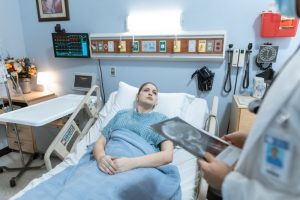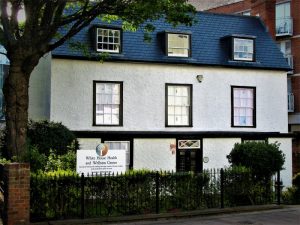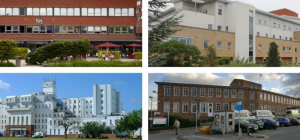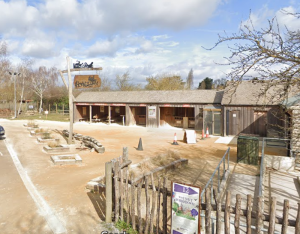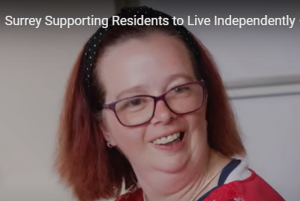As tensions mount within the UK healthcare sector, doctors across the country are gearing up for strike action. The looming industrial action has sent ripples of concern through the local Epsom healthcare system and the wider public, sparking a heated debate about the grievances motivating these medical professionals to take such measures.
In a week that promises to bring a fresh wave of challenges, hospitals across the UK brace themselves as a new round of strikes is set to commence. On Wednesday, consultants and junior doctors are set to unite in a day of industrial action, marking the first instance of such joint protest. The impact of this combined strike action is expected to weigh heavily on healthcare facilities, with St George’s, Epsom and St Helier hospitals particularly vulnerable, having recently grappled with the added strain of a heatwave.
Amid this turbulence, healthcare authorities call upon the public to exercise discretion in their use of NHS services. It’s emphasized that individuals should continue to seek medical care during emergencies or when they have scheduled appointments.
Dr. Richard Jennings, the Group Chief Medical Officer for St George’s, Epsom, and St Helier University Hospitals and Health Group, acknowledges the upcoming challenges: “While we do everything we can to minimize the impact strikes have on our patients, there is no denying this week will be very challenging for us. There’s been little respite this year, with several rounds of industrial action already taking place, not to mention our emergency departments becoming busier with the hotter weather. And with further industrial action planned for this autumn, and winter on the way, we would expect these extreme pressures to continue for some time.”
The joint strike is scheduled for Wednesday, September 20, with consultants and junior doctors ensuring emergency care remains available. However, elective surgeries and non-emergency appointments will be rescheduled. On Tuesday, September 19, some consultants will also strike while providing Christmas Day cover, and junior doctors will stage a complete walkout on Thursday, September 21, and Friday, September 22.
During this period, the public is urged to use NHS services judiciously to ensure that the most critical cases receive timely attention. It’s essential to bear in mind that visiting an emergency department for non-life-threatening issues may not result in quicker service.
Dr. Jennings advises, “We must prioritize our sickest and most seriously ill patients. That means if you attend our emergency departments and it’s not life-threatening, you may be redirected to a more appropriate service. You can help us by using NHS 111 online, which is a 24/7 service and can direct you to where you need to go when your healthcare need is less urgent. But when it’s an emergency or life-threatening, you should always call 999 or visit an emergency department.”
Numerous inpatient and outpatient appointments have already been rescheduled due to this year’s strike action, with more disruptions expected this time around. However, those with scheduled appointments are encouraged to attend unless notified otherwise. Alternative options, such as GP surgeries and pharmacies, remain largely unaffected by the strikes and can assist with common ailments like tonsillitis, coughs, colds, and earaches. Minor injuries like sprains and strains can be managed at home, or a pharmacist can provide guidance on the appropriate treatment.
For individuals in need of mental health support during a crisis in Kingston, Merton, Richmond, Sutton, or Wandsworth, the South West London 24/7 Mental Health Crisis Line is available at 0800 028 8000. More information can be found at https://www.swlstg.nhs.uk/patients-carers/crisis-support/mental-health-support-line. Similarly, in Surrey and North East Hampshire, support is accessible 24/7 for adults, young people, and children by calling 0800 915 4644. Additional information can be found at https://www.sabp.nhs.uk/our-services.
The dates for strike action are as follows:
- Consultants: Christmas Day cover from 7 am on Tuesday, September 19, to 8 am on Thursday, September 21.
- Junior doctors: Christmas Day cover from 7 am on Wednesday, September 20; full walkout from 7 am on Thursday, September 21, to 7 am on Saturday, September 23.
- Both consultants and junior doctors will be striking on Monday, October 2, Tuesday, October 3, and Wednesday, October 4, providing Christmas Day cover.
To understand the situation better, The Epsom and Ewell Times has delved into the arguments put forth by UK doctors explaining their reasons for considering a strike.
- Pay and Working Conditions: One of the primary concerns voiced by doctors is the state of their pay and working conditions. Many doctors argue that their wages have not kept pace with the cost of living, and they face long working hours that often stretch them to the limit. Some argue that these conditions not only affect their own well-being but also put patient safety at risk.
- Staff Shortages: The shortage of medical staff, including doctors and nurses, is another major concern. Doctors are often working in understaffed hospitals and clinics, leading to burnout and suboptimal patient care. They argue that without adequate staffing levels, patient safety is compromised, and they are unable to provide the level of care they would like to deliver.
- Patient Care: Doctors frequently emphasize their commitment to providing high-quality patient care. However, they argue that the current conditions make it increasingly challenging to maintain the level of care patients deserve. Overcrowded emergency rooms, lengthy waiting times, and limited resources all contribute to a deteriorating quality of care.
- Mental Health: The toll on doctors’ mental health is a pressing issue. The immense stress and emotional burden of their work can lead to burnout, anxiety, and depression. Doctors argue that addressing these mental health challenges is essential to ensure they can continue to provide effective care to patients.
- NHS Funding: Doctors are also concerned about the overall funding of the National Health Service (NHS). They argue that the NHS needs increased funding to address the aforementioned issues adequately. Insufficient funding, they claim, hampers efforts to improve working conditions and patient care.
- Privatization Concerns: Some doctors express worries about the gradual privatization of healthcare services in the UK. They fear that privatization could lead to a two-tier healthcare system, where those who can afford private care receive better services, leaving the public healthcare system further strained.
The doctors’ strike is viewed by many as a last resort, taken only after exhausting negotiations with government officials and healthcare administrators. While the potential strike has raised concerns about the impact on patients, it also serves as a stark reminder of the challenges faced by medical professionals in the UK.
As the situation continues to develop, the nation watches closely, hoping for a resolution that can address the doctors’ concerns while safeguarding the healthcare needs of the population. The outcome of this ongoing debate will undoubtedly have significant implications for the future of healthcare in the United Kingdom.


